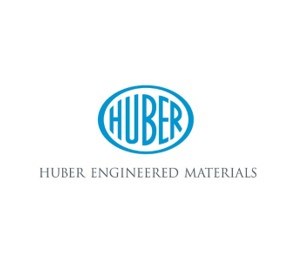Expansion to Huber fire retardant additives plant nearing completion
The expansion to the German-based fine precipitated hydrate plant is expected to increase production capacity by 20%.

The Fire Retardant Additives (FRA) business unit of the Huber Engineered Materials (HEM, Atlanta, Ga., U.S.) division of J.M. Huber Corp. has announced that the second phase of capacity expansion for its fine precipitated hydrate (FPH) Martinswerk plant in Bergheim, Belgium, will be completed by the end of 2019. The expansion, approved in March 2018, is expected to increase FPH production capacity for high-quality Martinal LEO grades by about 20%.
The expansion project represents the single largest investment made over the last 40 years at Martinswerk (formerly a business of Albermarle Corp. and acquired by HEM in 2016), and reportedly will result in the delivery of several significant sustainability improvements, such as water reduction, in line with company objectives.
“This investment underlines the commitment towards our customers to support their growth and our strategy to grow and strengthen our global halogen-free fire retardant business. We are proud that our engineering and operations teams will complete such a large and complex project on time,” says Martin Schulting, managing director of Huber’s Martinswerk FRA business unit in EMEA+I. “We continue to position ourselves as a reliable and trustworthy supplier of high quality products, which bring value to our customers.”
The Martinal LEO fine precipitated alumina hydrate grades are said to offer consistently superior processing properties and serve as the company’s global product platform for its customers.
Huber produces alumina trihydrate and magnesium hydroxide non-halogenated fire retardants. Its FRA business unit has four manufacturing sites in North America and two in Europe. The company’s portfolio includes Martinal, Hydral, Hymod and Micral alumina trihydrates; Magnifin, Vertex and Zerogen magnesium hydroxides; and Kemgard molybdate compounds, for end-use applications including reinforced polyester molding and pultrusion, engineering thermoplastics, roofing, silicone rubber, wire and cable, coatings and carpet backing.
Related Content
-
SmartValves offer improvements over traditional vacuum bag ports
Developed to resolve tilting and close-off issues, SmartValves eliminate cutting through vacuum bags while offering reduced process time and maintenance.
-
Plant tour: Albany Engineered Composites, Rochester, N.H., U.S.
Efficient, high-quality, well-controlled composites manufacturing at volume is the mantra for this 3D weaving specialist.
-
Composite resins price change report
CW’s running summary of resin price change announcements from major material suppliers that serve the composites manufacturing industry.

.jpg;width=70;height=70;mode=crop)














